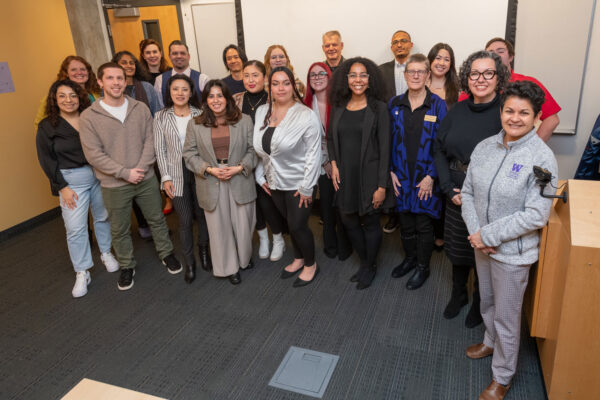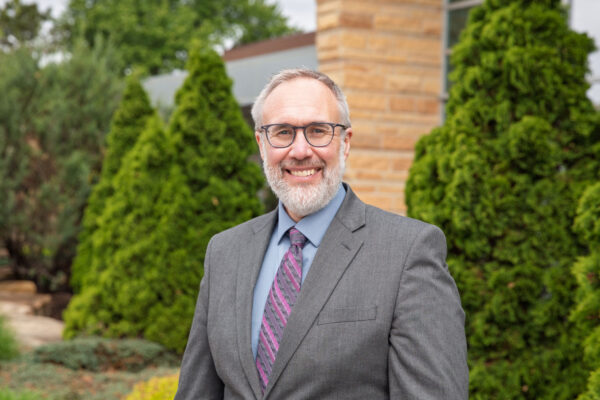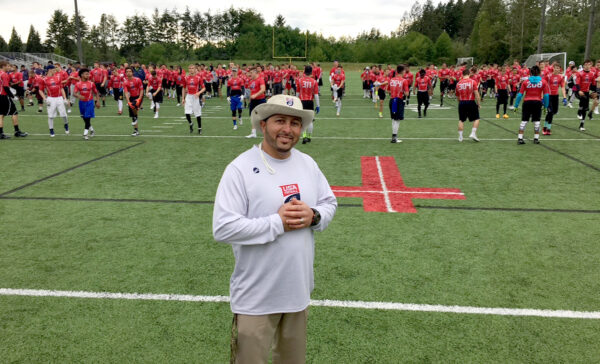In the Master of Arts in Policy Studies program at the University of Washington Bothell, students gain the skills they need for policy careers in various fields as well as across private and public sectors. They acquire these skills not just in the classroom but also through real-world experience with community partners.
The Class of 2025 MAPS students worked on a capstone — the final project that serves as the culmination of their UW Bothell experience — that challenged them to solve some of the pressing issues that face the city of Redmond, this year’s partner.
“Courses that include a community-based component are some of the most challenging and rewarding courses to develop. I think they are also some of the most rewarding for students,” said Dr. Charlie Collins, associate professor in the School of Interdisciplinary Arts & Sciences. “Projects like these are only successful through these deep partnerships. I hope the students take away the importance of connection to the community.”
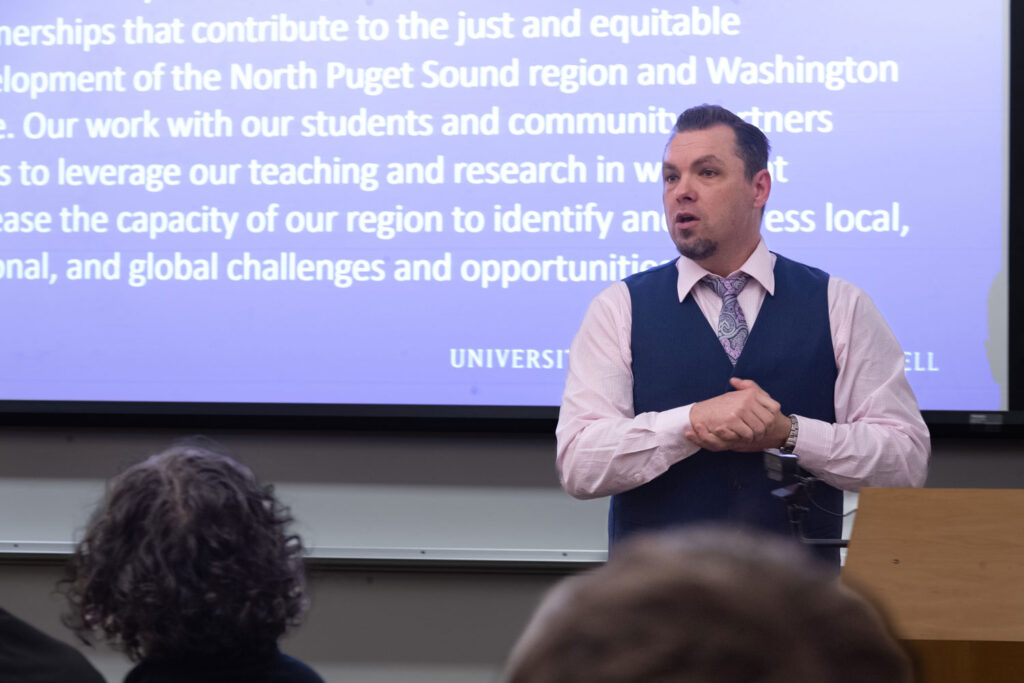
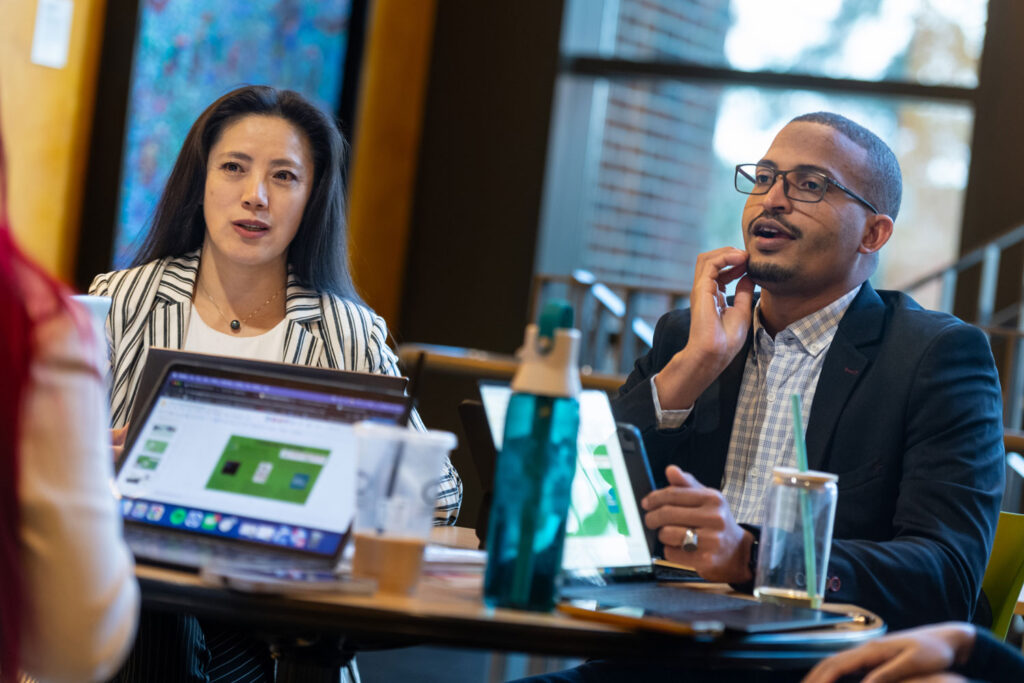
Real benefits for all partners
By centering each MAPS cohort capstone around a local partner, Collins said, students benefit from the chance to apply their learning. They are also able to support the needs of the regional community. It’s a mutually beneficial arrangement.
“The city of Redmond benefited from the insight, passion and values of the students in their studying, evaluating and providing recommendations on community issues that are current and greatly important to the city of Redmond and its residents,” said Steve Fields, Redmond City Council member. “The students benefited through the intellectual and emotional growth in sharing the experience and burden of determining actions that benefit their community.”
Just as UW Bothell works to integrate community engagement into its research and teaching wherever possible, Fields said he also makes working in partnership with local organizations and engaged citizens a priority.
“It’s my long-standing belief that a core responsibility of any elected official is to partner with the community to govern together,” he said.
Fields offered the students several projects to choose from that each related to the city’s policy and strategic planning efforts. At the end of winter quarter, the cohort presented their three projects, which focused on rent stabilization, climate change adaptation and climate change emergency preparedness.
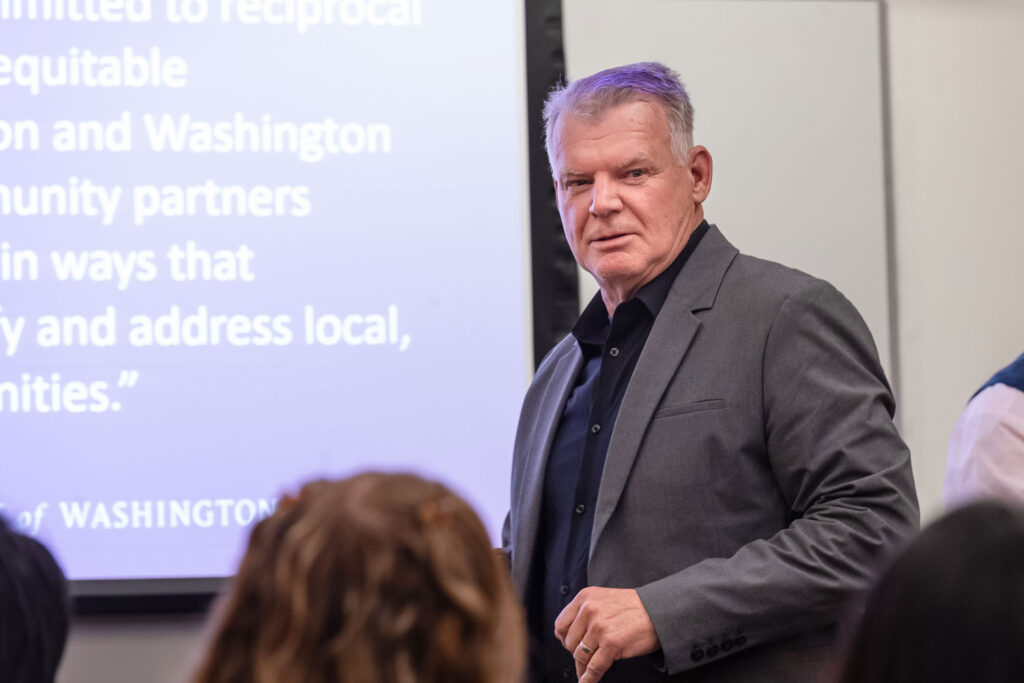
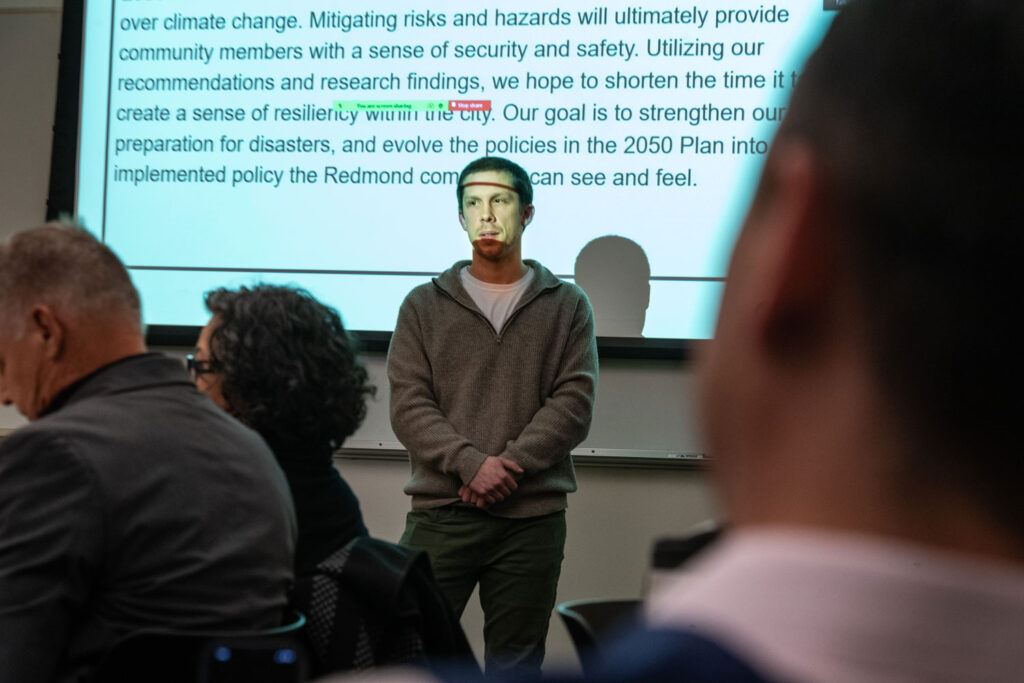
Grounded in community voices
Estefania Medina Salas, (MAPS, ’25), worked on “Rent Affordability and Displacement Prevention,” alongside three other students. The housing affordability crisis is an issue she cares deeply about, and the project was an opportunity to dig deeper.
“I was drawn to this topic because I’ve seen how housing instability impacts people’s lives, and I believe that safe, affordable housing is a basic human right,” she said. “As a member of already marginalized communities, this topic hit home for me in many ways. My goal was to help make housing more accessible and equitable for vulnerable residents.”
The group created a plan aimed at preventing displacement — focusing on solutions such as rent stabilization, tenant protections, financial and legal aid, and community engagement. Wanting to make sure their recommendations were informed by community needs, they reached out to local organizations as part of their research.
“I learned that developing meaningful policy isn’t just about good ideas — it’s about listening, adapting and building relationships,” Salas said. “This experience deepened my understanding of the importance of capacity building and long-term support for local organizations. It showed me that policy work is most powerful when it’s grounded in community voices.”
Salas said she plans to go to law school after she graduates with her master’s in Policy Studies and wants to work in politics someday, so working with Fields and the city of Redmond was particularly rewarding.
“This project reaffirmed my passion for justice and advocacy, and it strengthened my desire to pursue a career in law,” she said. “Long term, I hope to serve in Congress, where I can help craft and pass legislation that addresses issues like this one and uplifts underserved communities. This experience showed me how policy and law intersect, and it deepened my commitment to being a voice for change at the highest levels.”
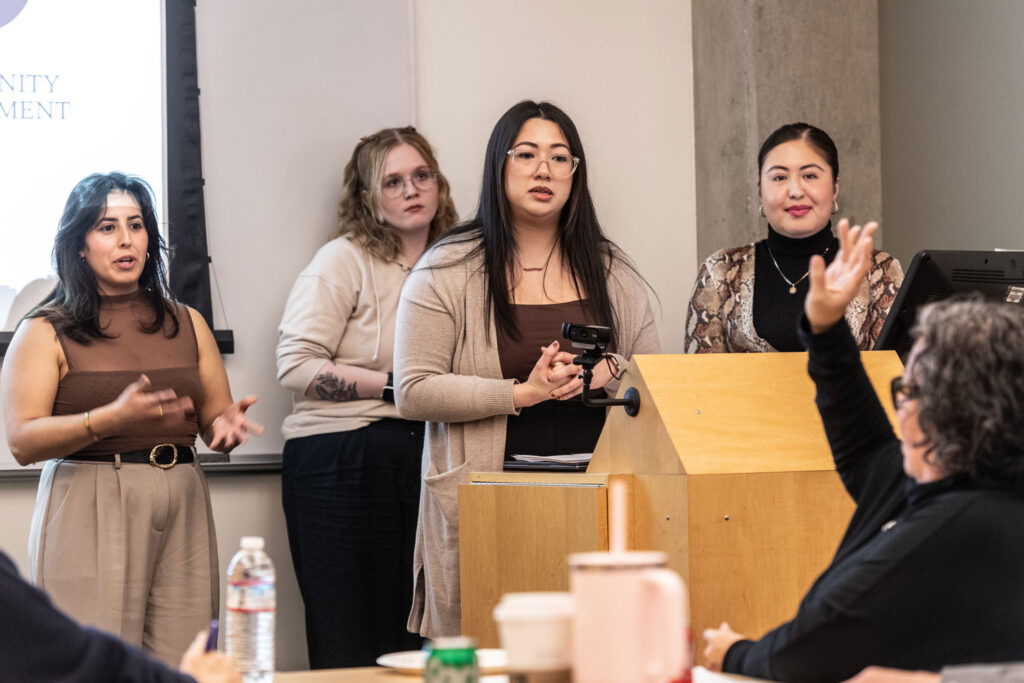
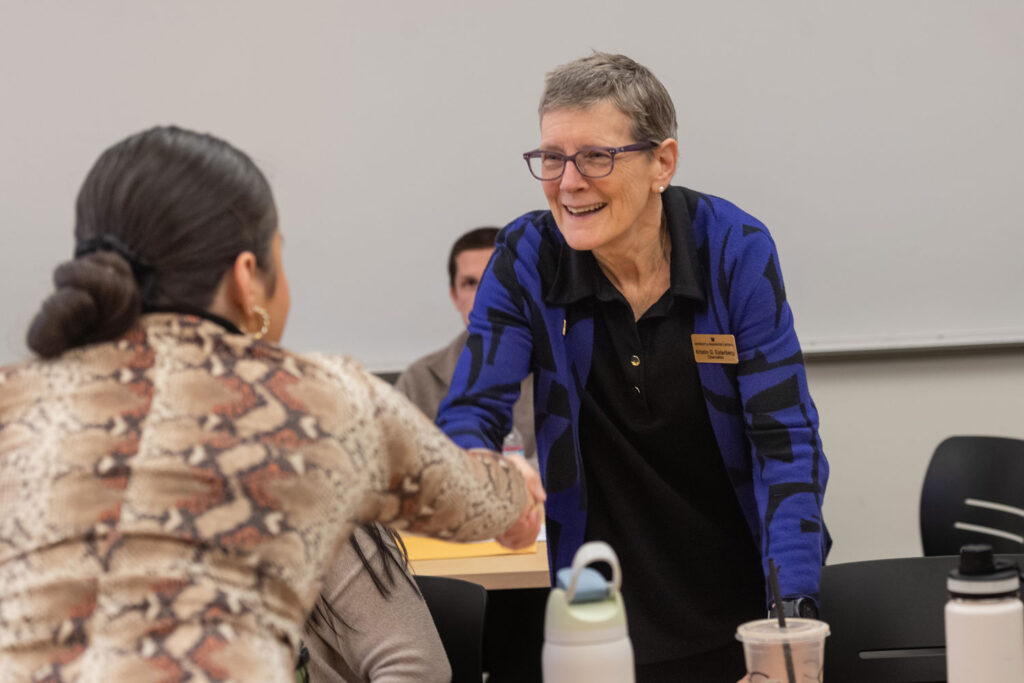
Policy and planning to save lives
In conversations with Fields, another group of students discovered that the city lacked an evacuation plan that leveraged community engagement — particularly for climate emergency scenarios that have a growing likelihood of happening more frequently.
“We approached this gap by thinking about the most effective way that we could not only evacuate the city but also keep the population psychologically sound during an emergency situation,” said Azaria Hickey (MAPS, ’25). “We enjoyed coming up with a project that would help out in an emergency by dispersing vital information and spreading assuredness in a time that would usually invoke chaos and fear.
“We were confident that our plan would be one that would aid the whole population of the city of Redmond equitably.”
“This experience showed me how policy and law intersect, and it deepened my commitment to being a voice for change at the highest levels.”
Estefania Medina Salas, MAPS ’25
Hickey added that the group project manager, Bri Fero (MAPS, ’25), came up with the idea for a color-coded and zoned evacuation system. It became the foundation for their plan, which was well received by the city. Through Fields’ connections, the team will later present it to the Redmond Fire Department.
“A major takeaway following this experience is the need for an equitable emergency evacuation plan that is heavily rooted in community engagement for all cities,” Hickey said. “Each city is unique in its resources for public transportation in an emergency situation, languages spoken in a city’s population, disabled demographics, climate risks and many more factors necessary for a city to tailor a plan to be fully prepared for a mass emergency evacuation.”
This summer, she will be working on another capstone project focused on a climate action plan for the city of Bothell. Then, after graduation, Hickey said she wants to work for a nonprofit organization or in city and state government.
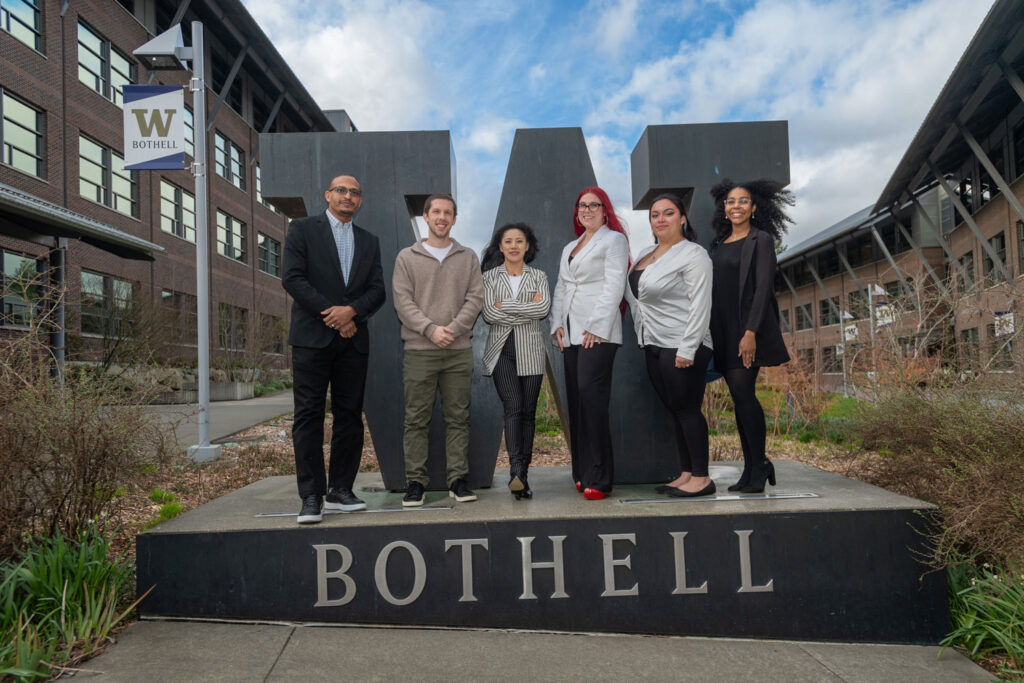
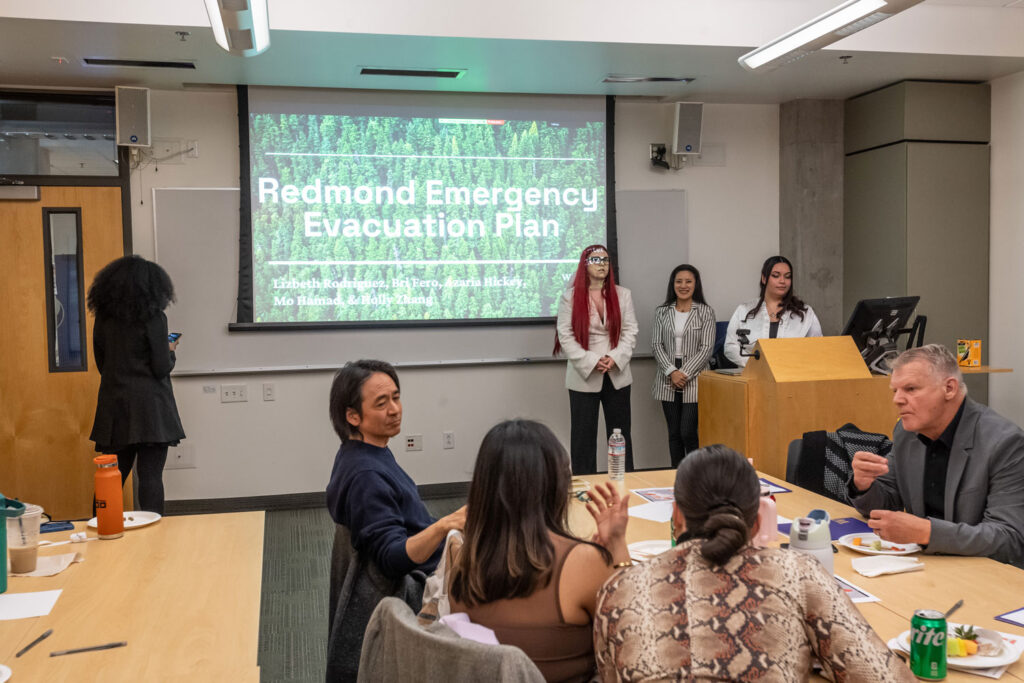
Information in action
Collins noted that students in his capstone practicum class don’t just walk away with a finished project so they can graduate from an academic program. They also leave school with the lessons they learned as well as the social capital and connections they built along the way.
“The community partner is almost always the highlight in these projects, and that was true for this class,” Collins said. “Council member Fields worked closely with the students throughout the quarter, making himself available and maintaining open communication.
“The drive and passion of the students were also significant contributors to the success of this partnership,” he added.
For Fields, the experience was equally rewarding, and the finished projects offered new perspectives and actionable information to incorporate into his own work.
“I was surprised by the students’ level of understanding of the complexities of competing interests, diverse viewpoints and potential conflicts that are inherent in decision making to serve the overall public interests. This approach is essential and often overlooked in our political environment today,” Fields said.
“It was inspiring, fun and a great benefit for me to see brilliant and caring students work with sincerity and commitment.”
